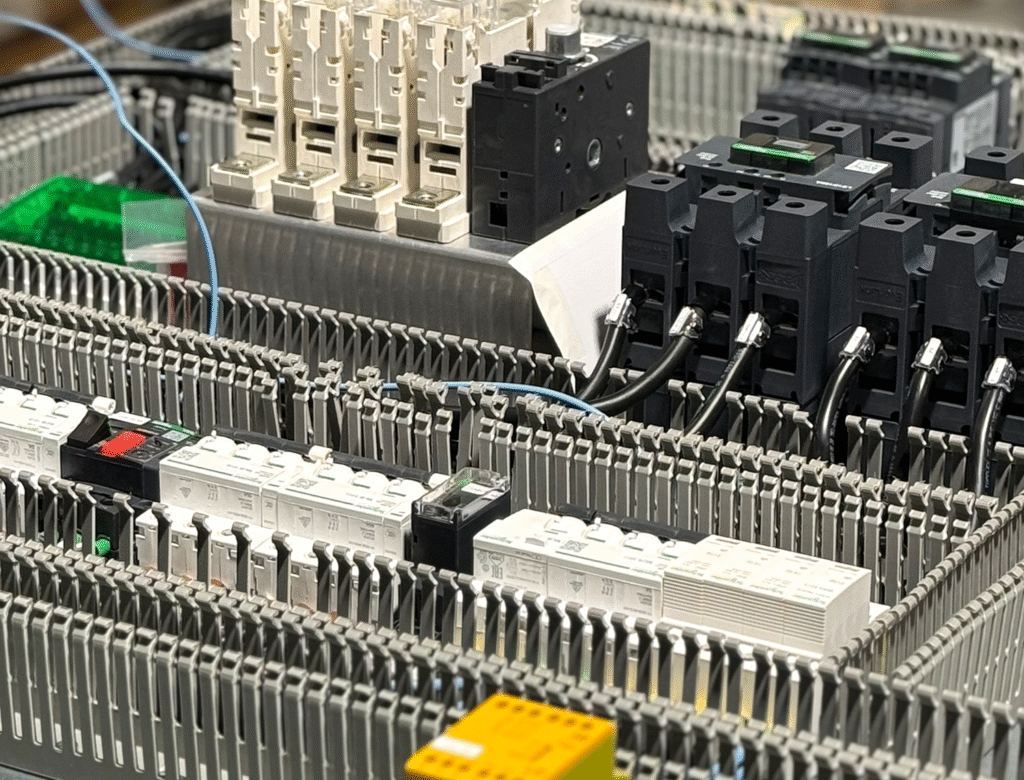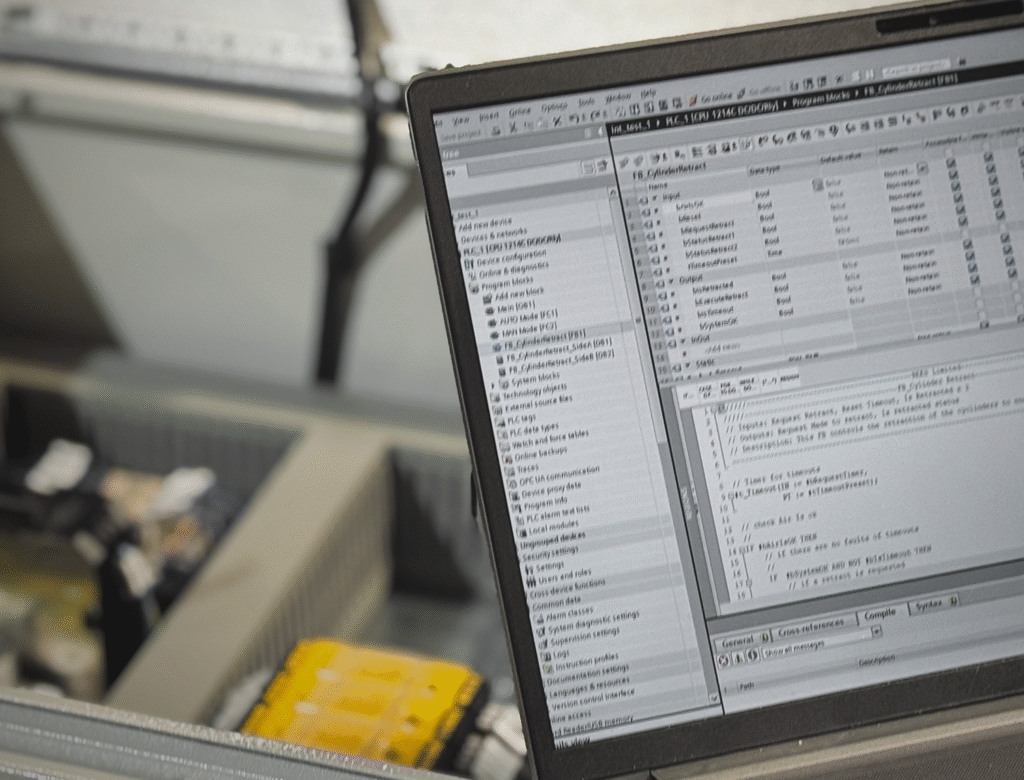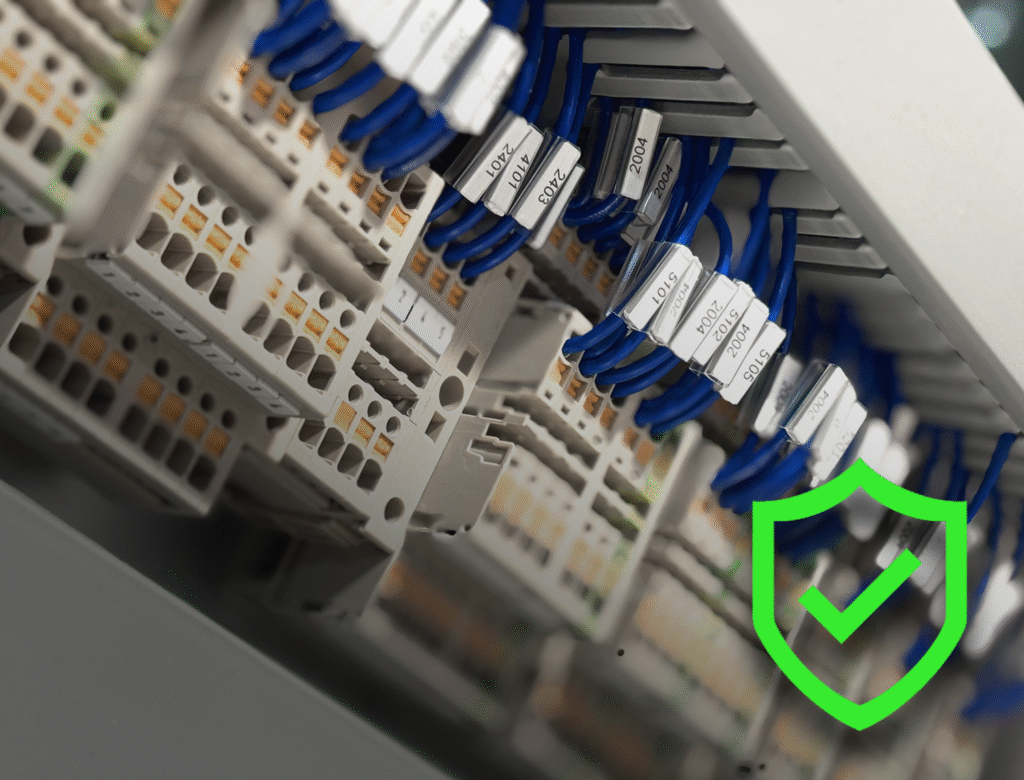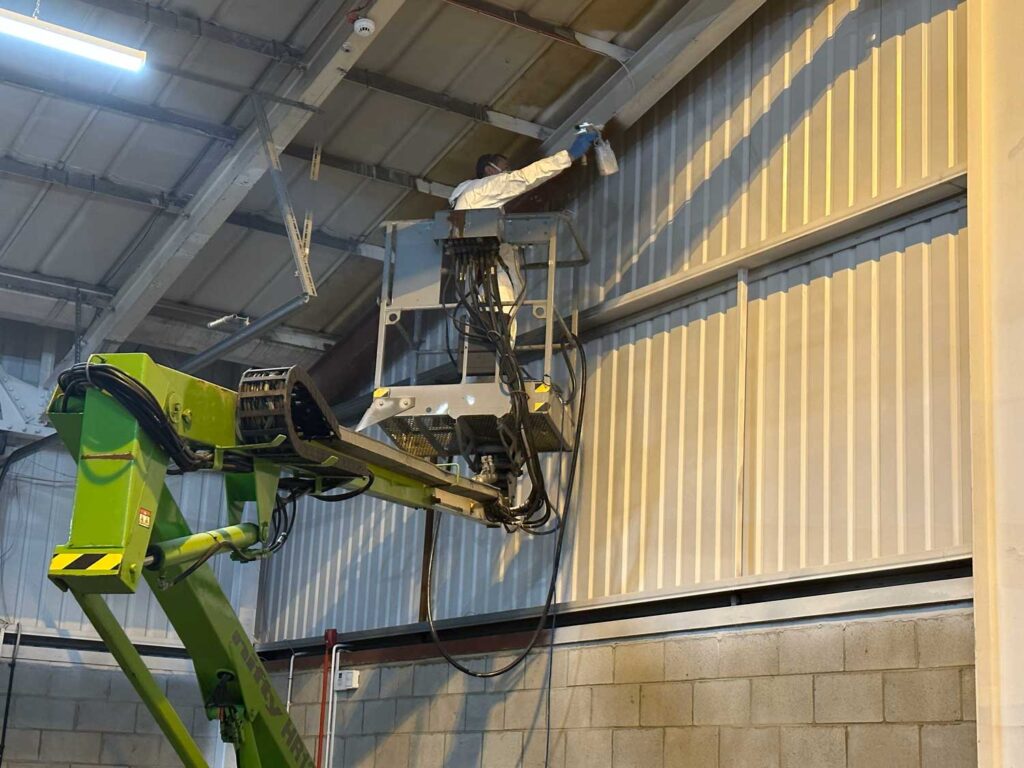When you walk into a modern factory or production facility, you’ll see machines working seamlessly – motors running, conveyors moving, sensors tracking, and processes happening with precision. Behind the scenes, the machine control panel is the unsung hero (and the engineers!) making it all possible.
If you’re new to automation or engineering, this guide will walk you through what a control panel is, why it matters, and how it’s used.
So What is a Machine Control Panel?
A machine control panel is the central hub that houses the electrical and electronic components required to control a machine or production line. Think of it as the “brain” of industrial equipment.
Inside, you’ll typically find:
- Power distribution systems – supplying energy to different machine parts
- Switches and relays – turning equipment on/off or activating functions
- Programmable Logic Controllers (PLCs) – the “brain” that makes decisions based on sensor inputs
- Human-Machine Interfaces (HMIs) – touchscreens or buttons for operators to interact with the machine
- Safety devices – emergency stops, circuit breakers, and overload protection
Where Are Machine Control Panels Used?
You’ll find control panels in almost every industrial environment, including:
- Manufacturing plants
- Packaging and processing lines
- Food & beverage production
- Pharmaceuticals
- Automotive assembly lines
- Scientific and medical equipment
Wherever machines need to work reliably and safely, control panels are essential.
Benefits of a Well-Designed Machine Control Panel
A properly built panel isn’t just a box of wires – it brings measurable advantages:
- Efficiency – smoother operations with fewer breakdowns
- Safety – built-in safeguards protect workers and equipment
- Scalability – panels can be designed to integrate future upgrades
- Compliance – ensures adherence to standards like IEC, UL, or CE
- Reduced Downtime – clear wiring and documentation make troubleshooting faster
- Data Analytics – smart panels capture real-time data to monitor performance, predict maintenance, and improve decision-making.
Custom vs. Standard Panels
Some businesses buy off-the-shelf panels, while others need custom-built solutions.
- Standard panels are quicker to source but may not fit your exact needs.
- Custom panels are designed for your specific machine, environment, and safety requirements.
If you run a complex operation, a tailored solution is often more cost-effective long-term.
The Future of Control Panels
With Industry 4.0 and the rise of smart factories, control panels are evolving. Expect to see:
- IoT-enabled panels for remote monitoring
- Predictive maintenance alerts using sensor data
- Energy-optimised designs to cut waste
- Touchscreen HMIs replacing mechanical switches
Final Thoughts
A machine control panel may look like a simple metal box from the outside, but inside it’s a carefully engineered system that keeps your machines running safely and efficiently.
Whether you’re upgrading existing equipment or designing a new system, investing in a well-designed control panel will pay off in productivity, safety, and reliability.
How BEES Can Help
At BEES, we design and build custom machine control panels that act as the true “brains” of your equipment – ensuring safety, efficiency, and long-term reliability. Whether you need a new build, an upgrade, or a tailored solution for a specialist application, our engineers are here to help.
Get in touch with the BEES team today to discuss your project.





